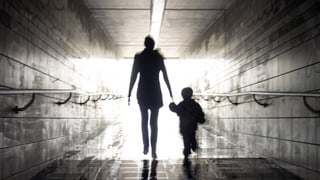The Netherlands clarifies and stops international adoptions
Young women and men who have been adopted from abroad are increasingly demanding information about their origins, proving abuses and taking legal action. This has now led to a ban on adoptions in the Netherlands.
By: Sabine Bitter, Elsbeth Gugger , Moderation: Monika Schärer , Editor: Sabine Bitter, Production: Michael Sennhauser
29.03.2021, 21:28
Listen to the showListen to the show
DownloadDownloadSubscribeSubscribeSplitSplit
"Ruwan - the jewel" or "lotus daughter". This is how one or another baby from Sri Lanka or India was welcomed when it came to a western European country for adoption. Since the 1970s, tens of thousands of German, French, Swedish, Dutch and Swiss couples have fulfilled their greatest wish: to have a child - or even two - from a distant country. Many of these children are now adults. And some of them are realising that their origins are a mystery. They ask themselves: who am I and where do I come from? They do their own research, request access to files or file lawsuits. Under pressure from those affected, some western European countries are beginning to investigate foreign adoptions. In recent years, a large number of abusive adoptions have been uncovered, for example in Switzerland, France and the Netherlands, which recently even imposed a ban on adoptions due to revealed abuses.
Individual contributions
The Netherlands stops international adoptions
Running time 13 minutes 31 seconds.13:31 min , Elsbeth Gugger
SplitSplit

“I was a stolen child”
Running time 19 minutes 7 seconds.19:07 min , Sabine Bitter
More on the topic: The “Sri Lanka Adoptions” – A Swiss Scandal
SplitSplit

In court for forged birth certificates
Running time 8 minutes 47 seconds.08:47 min , Sabine Bitter
SplitSplit